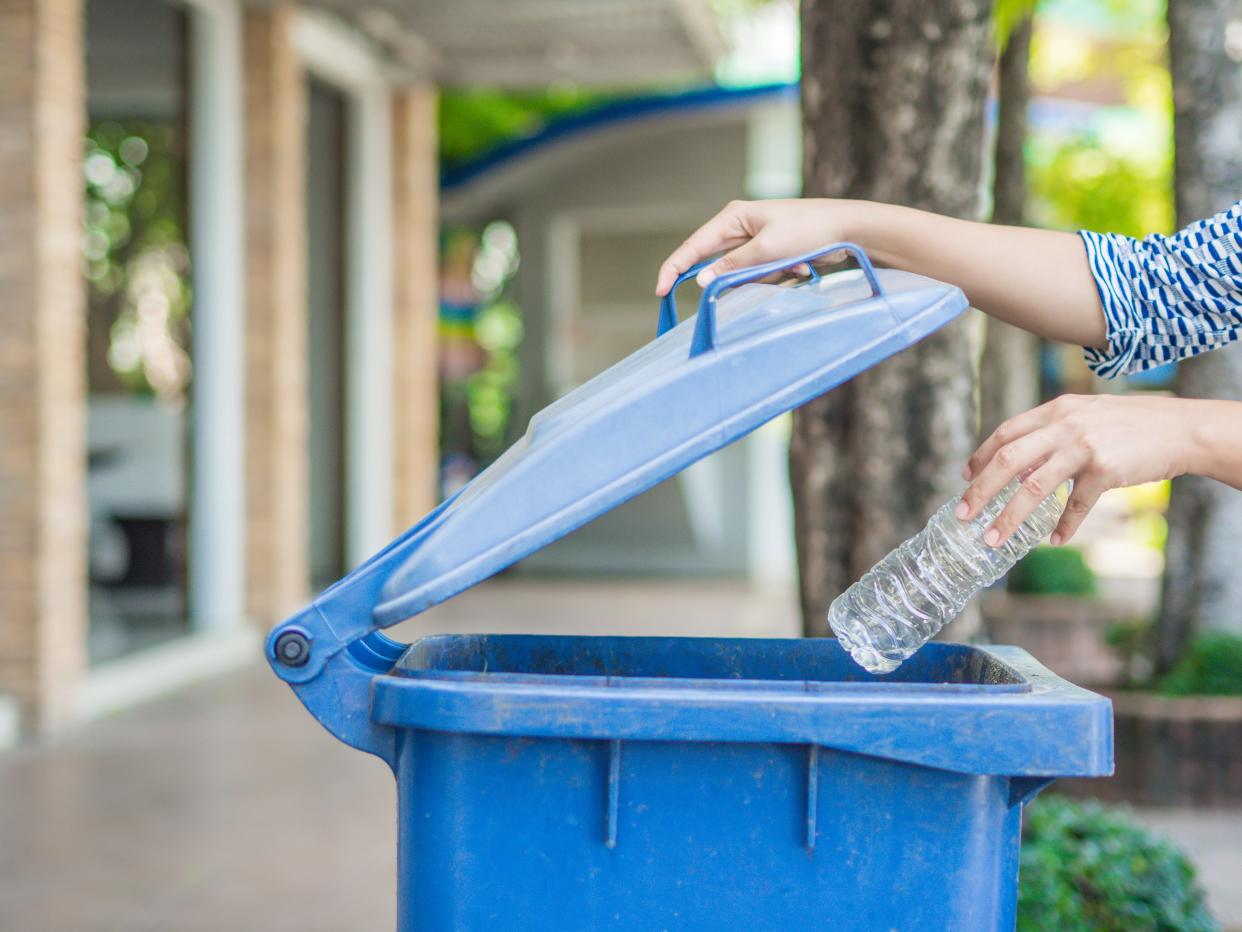New Year Resolution: Tips on how to be more eco-friendly on a budget in 2024

The new year welcomes the opportunity to pick up some new habits. It’s a great time to let go of a few bad habits as well.
Here are a few tips to be more eco-friendly on a budget in time for the new year.
Peggy Whitlow Ratcliffe, co-author of "How to Reduce, Reuse, and Recycle" toolkit for Drawdown Georgia, said living a sustainable lifestyle isn’t that far out of reach.
“I’ve noticed lately that people are really getting into thrifting, which I think is awesome,” said Ratcliffe, founder and executive director of Live Thrive. “When we get materials here at the facility, we work with other nonprofits to try to get things back into the community. There's so many things that we have that someone else could use. It’s important to teach kids to go into their room and if there’s something they're done with, someone else can use it.”
Recycling can reduce greenhouse gas emissions because recycling existing materials is often less energy-intensive than creating new materials, according to Drawdown Georgia.
Ratcliffe said check in with local organizations, like the Boys & Girls Clubs, to see if they’re in need of any equipment.
“Kids grow so quickly,” said Ratcliffe. “They outgrow whatever sport they're playing, whether it’s gymnastics or dance. Someone that doesn’t have the funds could benefit from the equipment or musical instrument. You’d be surprised how many people are willing to throw those things away when they don't want them anymore.”
More: Considering reducing your carbon footprint this holiday season? Here are a few tips
What can you recycle in Georgia?
First things first, check with your local municipality for guidance. Common items that most recycling will accept include:
Plastic bottles and/or containers
Aluminum
Metal
Mixed Paper
Corrugated Cardboard
Here's a list of some common items that can be more difficult to recycle, but are accepted at some places, according to the Drawdown Georgia website.
Bikes, scooters
Paint
Hazardous Materials and Chemicals
Appliances
You can avoid the need to recycle by avoiding the use of many items.
“There are so many things you can use jars for as opposed to using plastic ziplock bags,” said Ratcliffe. “You can store your herbs, flour or sugar in jars. You can even store leftover food in a glass jar and store it in the fridge.”
What items can be reused?
Clean out jars and use them to:
Propagate or water plants
Store dry goods.
Make candles.
Hold onto used wrapping paper and/or gift bags and reuse them in the future.
Instead of throwing away an old t-shirt, cut it into squares and use those as rags to clean with.
Eco-friendly shopping: Considering reducing your carbon footprint this holiday season? Here are a few tips
What’s the deal with plastic?
“A lot of the local grocery stores, including in your area, usually take grocery bags back,” said Ratcliffe. “They’re used to either make new plastic bags or building materials. Most new buildings instead of wooden decks use this building material made out of plastic film. Some Publix, Walmart, Target and Kroger (stores) take them back.”
Recycling helps the environment and local economy.
“Georgia is No. 2 in the nation for remanufacturing recycled materials,” said Ratcliffe. “We have over 120 manufacturers in our state that survive off recycled materials. For example, 33% of all PET (polyethylene terephthalate) plastic generated in the U.S. is sent to Georgia to be recycled for carpet manufacturing. This stimulates jobs and stimulates our economy.”
Natasha Roberson, owner of Gloria Manor Organics Farm located in Blythe, Georgia, is dedicated to promoting and teaching self sustainability with growing your own foods.
“Growing your own food can save you money,” said Roberson. “The most money will be spent purchasing your seeds. Find out what types of vegetables and fruits are native to your land and put them in the ground. Once you reach your harvest, there'll be more seeds available to you."
Those with no access to land can also grown food in a container, she said.
"Herbs and tomatoes are very easy to grow," she said. "Some herbs even have healing powers.”
This reporting content is supported by a partnership with several funders and Journalism Funding Funding Partners.
Erica Van Buren is the climate change reporter for The Augusta Chronicle, part of the USA TODAY Network. Connect with her at EVanBuren@gannett.com or on X: @EricaVanBuren32.
This article originally appeared on Augusta Chronicle: Tips on how to become eco-friendly in time for the new year

